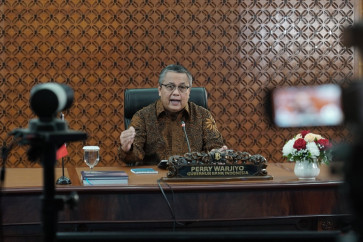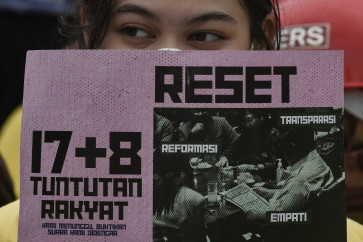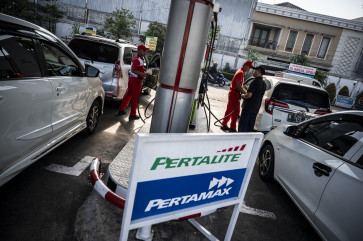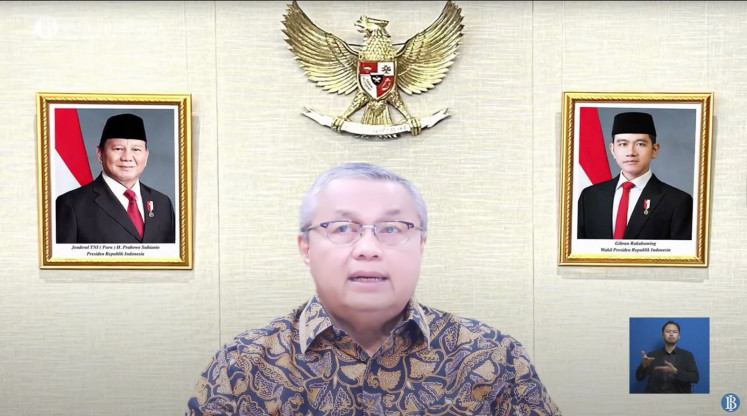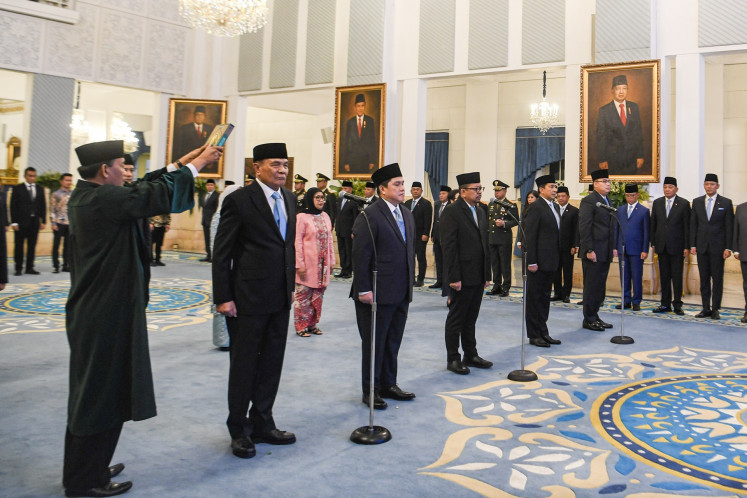Popular Reads
Top Results
Can't find what you're looking for?
View all search resultsPopular Reads
Top Results
Can't find what you're looking for?
View all search resultsGovt relies on local administrations to promote breast-feeding
The government will rely on local administrations to promote exclusive breast-feeding to mothers wavering on using baby formula, a top health official says
Change text size
Gift Premium Articles
to Anyone
T
he government will rely on local administrations to promote exclusive breast-feeding to mothers wavering on using baby formula, a top health official says.
“In Indonesia, breast-feeding remains unpopular, particularly because of a massive promotion of infant formulas that has made mothers reluctant to breast-feed their babies,” Minarto, the chief of the Health Ministry’s nutrition directorate, said in Jakarta on Thursday.
The government issued a government regulation (PP) on promoting exclusive breast-feeding, which itself was an offshoot of the 2009 Health Law that required mothers to exclusively breast-feed their newborns for six months barring medical problems.
“We are lacking medical workers or assistants who can encourage mothers to breast-feed,” Minarto added.
Despite limitations, officials in Klaten, Central Java have recorded that more local mothers have been breast-feeding, which Minarto attributed to a strong commitment from the local administration, which issued a bylaw to promote breast-feeding.
“Improving the capacity of healthcare and childcare workers and enforcing breast-feeding bylaws are another key step that will boost breast-feeding promotion programs in the regency,” he said.
The percent of infants in Klaten who were breast-fed for their first six months babies rose from 24 percent in 2007 to 76 percent in 2011.
Klaten regency along with the provincial administrations of South Sulawesi and West Nusa Tenggara (NTB) are the only local governments that have issued breast-feeding bylaws.
In Indonesia, efforts to boost the number of breast-fed infants began in the 1990s, when the health minister issued a regulation covering the marketing of infant formula to follow up on recommendations stipulated by the International Code of Marketing of Breast Milk Substitutes that was issued by the World Health Organization (WHO).
The current Health Minister, Nafsiah Mboi, said that the regulation issued in 1997 by her predecessor had not been effective enough in boosting the number of exclusively breast-fed infants.
“From various data sources, I can conclude that the progress of efforts to expand the coverage of exclusive breast-feeding in Indonesia has been slow, showing insignificant development,” Nafsiah said on Wednesday on the sidelines of a workshop to celebrate World Breast-feeding Day.
Citing data from a 2010 National Social Economic Survey (Susenas), Nafsiah said that only 33.6 percent of infants had been breast-fed exclusively in their first six months.
“A lack of capacity on breast-feeding counseling among healthcare providers and the excessive and unethical promotion of formula have caused such poor breast-feeding practice,” the minister said.
According to the Basic Healthcare Facilities Research Report compiled by the ministry in 2009, only about 40 percent of the nation’s hospitals have obtained certification as maternal-infant care facilities.
Hospitals can only receive the certification from the ministry if they implement 10 steps to promote breast-feeding, such as providing lactation counsellors.
According to a rapid assessment conducted by the Health Ministry in 2010, many public and private hospitals receive sponsorships and gifts, such as free samples of formula products and seminar kits including bags, calendars, ballpoints, and block notes.
The gifts affected efforts to improve exclusive breast-feeding rates, the ministry said.


